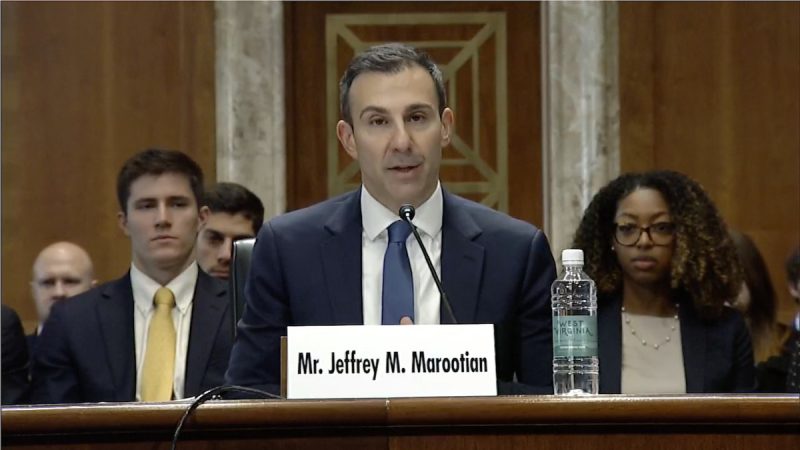The Department of Energy (DOE) quietly promoted a top adviser to Energy Secretary Jennifer Granholm to a senior role overseeing home appliance regulations after he failed to clear Senate confirmation.
The DOE announced last week that Jeff Marootian was appointed to be the principal deputy assistant secretary of the agency’s Office of Energy Efficiency and Renewable Energy (EERE). The appointment came days after the White House withdrew his name from consideration to lead EERE as the office’s assistant secretary.
While Marootian’s nomination failed after Senate Energy and Natural Resources Committee Chairman Joe Manchin, D-W.Va., opposed him over the Biden administration’s crackdown on natural gas-powered stovetops, his appointment last week makes him the effective chief of the DOE’s EERE office.
President Biden has yet to nominate another person to be Assistant Secretary for Energy Efficiency and Renewable Energy, meaning Marootian, whose new position doesn’t require Senate confirmation, is the most senior official in the EERE office. The office is tasked with issuing and implementing energy efficiency regulations such as those affecting gas stoves and other home appliances.
‘Jeff Marootian is an unelected, unaccountable, and unconfirmed bureaucrat who is carrying out President Biden’s orders to attack affordable household appliances,’ Senate Energy and Natural Resources Committee Ranking Member John Barrasso, R-Wyo., told Fox News Digital in a statement.
‘These rules are making life more expensive for all Americans by denying them the products they need. Biden and Marootian are coming after appliances in every room of our home – from gas stoves in our kitchen to water heaters in our basement,’ he continued. ‘The administration should put forward a new nominee who will work to lower costs and give consumers choice.’
Barrasso opposed Marootian’s nomination last year, arguing he was more qualified for a Transportation Department role.
Marootian was first nominated to take the helm at the EERE office in July 2022 after serving as special assistant to Biden and, prior to that role, director of the Washington, D.C., Department of Transportation. The position has been vacant since Daniel Simmons, who led the office throughout the Trump administration, departed the DOE in early 2021.
Granholm then hired Marootian as her senior adviser for energy efficiency and renewable energy in September 2022. His confirmation hearing before the Senate Energy and Natural Resources Committee took place in November, and he was reported out of committee in December, but his nomination stalled at the end of session, forcing Biden to renominate him in January.
Manchin then unexpectedly came out in opposition to Marootian’s nomination in May, putting Marootian’s chances of receiving Senate confirmation in jeopardy. Though the White House stood by Marootian at first, it ultimately withdrew his nomination earlier this month.
‘While I supported Mr. Marootian’s nomination in December, since then the office he’s been nominated to lead has proposed stove efficiency rules that I’ve raised concerns about,’ Manchin told Fox News Digital on May 17. ‘While I appreciate that these rules would only apply to new stoves, my view is that it’s part of a broader, administration-wide effort to eliminate fossil fuels. For that reason, I’m not comfortable moving forward with Mr. Marootian at this time.’
Since Marootian was hired to advise Granholm on energy efficiency and since his nomination was returned to the White House, the DOE has pursued a number of energy efficiency regulations impacting household appliances including gas stovetops, ovens, clothes washers, refrigerators, air conditioners and dishwashers which consumer advocates have criticized as regulatory overreach.
‘It’s just spreading to more and more appliances. It seems that almost everything that plugs in or fires up around the house is either subject to a pending regulation or soon will be,’ Ben Lieberman, a senior fellow at the Competitive Enterprise Institute, previously told Fox News Digital.
‘Consumers aren’t going to like any of it,’ he added. ‘These rules are almost always bad for consumers for the simple reason that they restrict consumer choice.’
